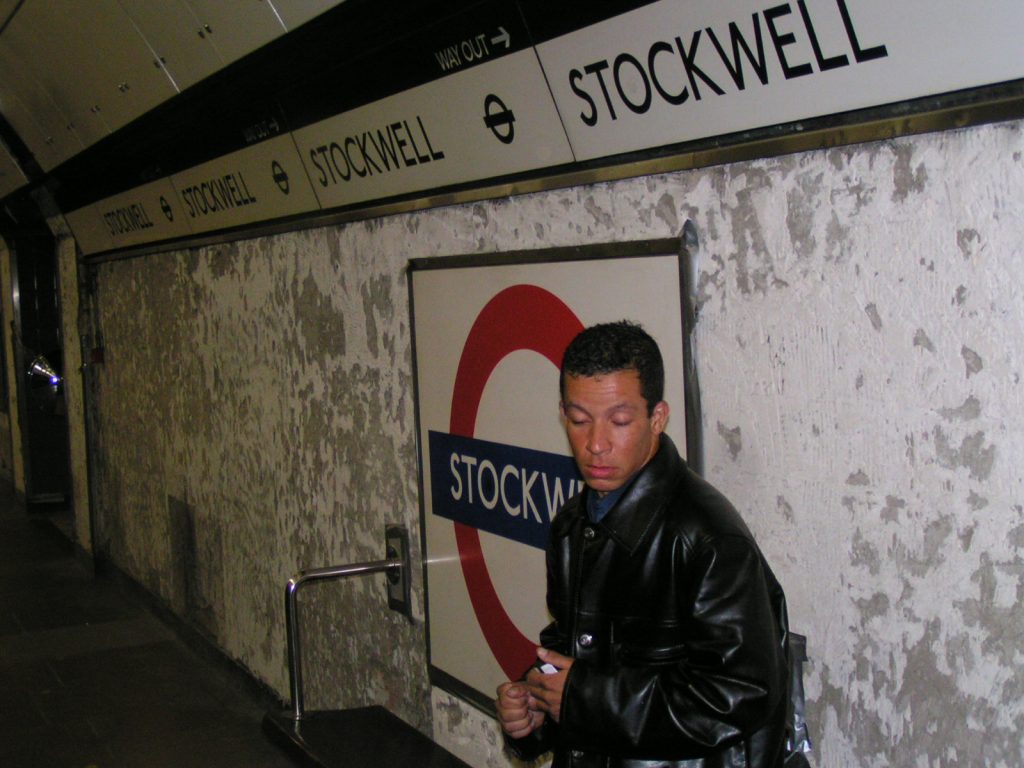Several hundred people joined an anti-Iraq war protest outside President George W Bush’s holiday ranch in Crawford, Texas, on Sunday, as the American Civil Liberties Union accused the White House of trying to avoid responsibility for torture at Abu Ghraib.
Sunday’s demonstration was organised by Cindy Sheehan, whose son was killed in Iraq last year.
Sheehan is calling for the withdrawal of the 138,000 US troops deployed in Iraq.
The protest was addressed by veterans of the military action in Iraq who now oppose the war.
Iraq veteran Hart Vigus said: ‘I joined because of September 11. I thought I was going to make a difference and help the situation.
‘But after experiencing war, seeing the death and seeing that violence only begets more violence – an eye for an eye leaves the whole world blind.’
Demanding to see Bush, Cindy Sheehan has been camped outside his Prairie Chapel ranch, since the beginning of his a five-week break from Washington.
She has said she will follow him back to Washington and camp out in front of the White House if he refuses.
On Friday, Bush was forced to run a gauntlet of demonstrators as he ventured from his ranch for a political fundraiser.
As Bush’s motorcade sped past, Sheehan clutched a sign that read, ‘Why Do You Make Time for Donors And Not For Me?’
The demonstrators planted some 500 white wooden crosses on the road to the ranch, each with the name of a US soldier killed in Iraq.
In his weekly radio address last Saturday, Bush attempted to portray the situation as improving.
Meanwhile, in legal papers unsealed last Thursday, the American Civil Liberties Union has urged a federal court to order the release of photographs and videos that depict the abuse and torture of prisoners in US custody at Abu Ghraib prison in Iraq.
The ACLU also asked the court to reject the Bush administration’s attempt to file some of its legal arguments in secret.
ACLU Executive Director Anthony D Romero said: ‘The ACLU shares everyone’s deep concern about the dangers facing American soldiers in Iraq and elsewhere.
‘The actions depicted in these photos and videos demonstrate the failure of American leaders who placed our young men and women in compromising situations and are now seeking to blame them for it.
‘The real shame here is that our leaders left our troops out on a limb and now they are hiding behind a veil of rank and government office to avoid accountability.’
Romero noted that until the first photos of detainee abuse at Abu Ghraib were made public in April 2004, the government had consistently denied that any wrongdoing had taken place despite news reports to the contrary.
Since then, the ACLU has obtained through a court order more than 60,000 pages of government documents regarding torture and abuse of detainees.
Despite this evidence, the government continues to minimise the extent of the torture and to describe it as the action of a few rogue soldiers.
In response, the ACLU has called for an independent counsel with subpoena power to investigate the torture scandal, including the role of senior policymakers, and has filed a separate lawsuit to hold Defence Secretary Rumsfeld and high-ranking military officers accountable.
In a court declaration that was also unsealed last Thursday, former US Army Colonel Michael E Pheneger, a retired military intelligence expert, responded to the government’s ‘cause-and-effect’ argument that release of the images would spark violence abroad.
‘Our enemies seek to prevent the United States from achieving its objectives in the Middle East,’ he said.
‘They do not need specific provocations to justify their actions.’
Noting that the Chairman of the Joint Chiefs of Staff, Gen. Richard B Myers, has estimated that insurgents average 70 attacks a day, Col. Pheneger added: ‘The attacks will continue regardless of whether the photos and tapes are released.’
The ACLU is also engaged in an ongoing dispute over the government’s efforts to keep some of its legal documents in the case under seal and to conduct court hearings behind closed doors, including a hearing that was scheduled for yesterday, Monday, August 15.
Depending on the court’s ruling on the sealing order during the first part of that hearing, arguments regarding the photos and videos may be opened to the media and the public.
The ACLU filed an additional brief last Friday responding to the government’s efforts to suppress the photographs and to keep its legal arguments secret.
The government initially objected to the release of the images on the grounds that it would violate the Geneva Conventions rights of the detainees depicted in the images.
That concern was addressed by court order on June 1 directing the government to redact any personally identifying characteristics from the images. The ACLU did not object to those redactions.
It is worth noting, the ACLU said, that the government has repeatedly taken the position that the detainees themselves cannot rely on the Geneva Conventions in legal proceedings to challenge their mistreatment by American personnel.
The case arose from a lawsuit filed under the Freedom of Information Act (FOIA) by the ACLU, the Center for Constitutional Rights, Physicians for Human Rights, Veterans for Common Sense and Veterans for Peace.
The New York Civil Liberties Union is co-counsel in the case.
The FOIA lawsuit is being handled by Lawrence Lustberg and Megan Lewis of the New Jersey-based law firm Gibbons, Del Deo, Dolan, Griffinger & Vecchione, P.C. Other attorneys in the case are Amrit Singh, Jameel Jaffer, and Judy Rabinovitz of the ACLU; Arthur N. Eisenberg and Beth Haroules of the NYCLU; and Barbara Olshansky of the Center for Constitutional Rights.
